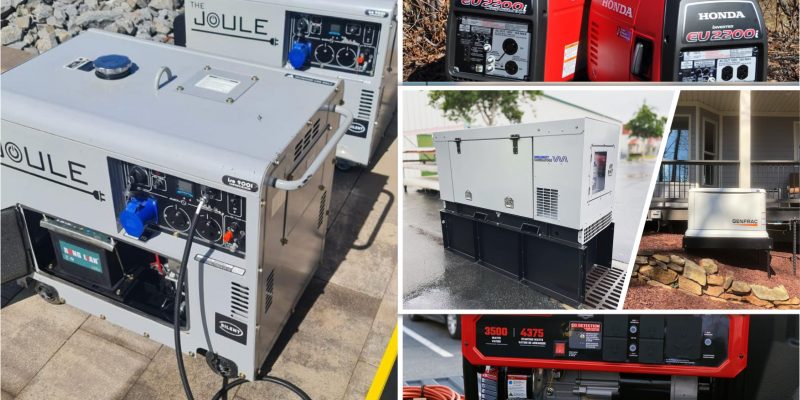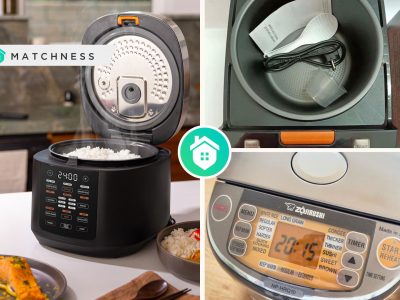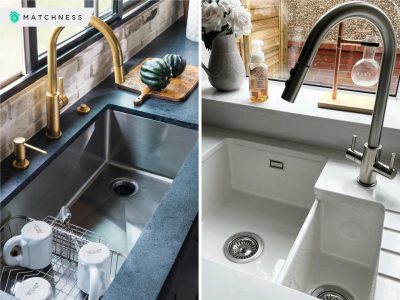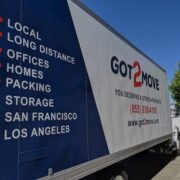Generators are already part of the house. This can be an alternative source of energy for your home. Especially in the event of a power outage, a generator is needed. The generator will keep your electronic equipment and home appliances operating even if the main electricity goes out. Talking about generators, there are many kinds of generator for your home, and each comes with different features.
It’s important to know the kind of power you need and the fuel that it runs on before buying one. The best generator for your home is one that can power your entire house. This means you’ll have enough power to run your furnace, kitchen appliances, lights and television. Depending on the size of your home, you’ll need a larger or smaller generator. For example, a small, single-level home might need a 3800 or 4500 watts generator.
What is a Generator?
Generator is a machine that converts mechanical energy into electrical power, which can be used for a wide range of applications. In addition to providing the electricity needed for homes, offices and industries, generators also serve as backup power sources to help in times of power shortage or outage. Below, we have some references of generator that can be used for your home.
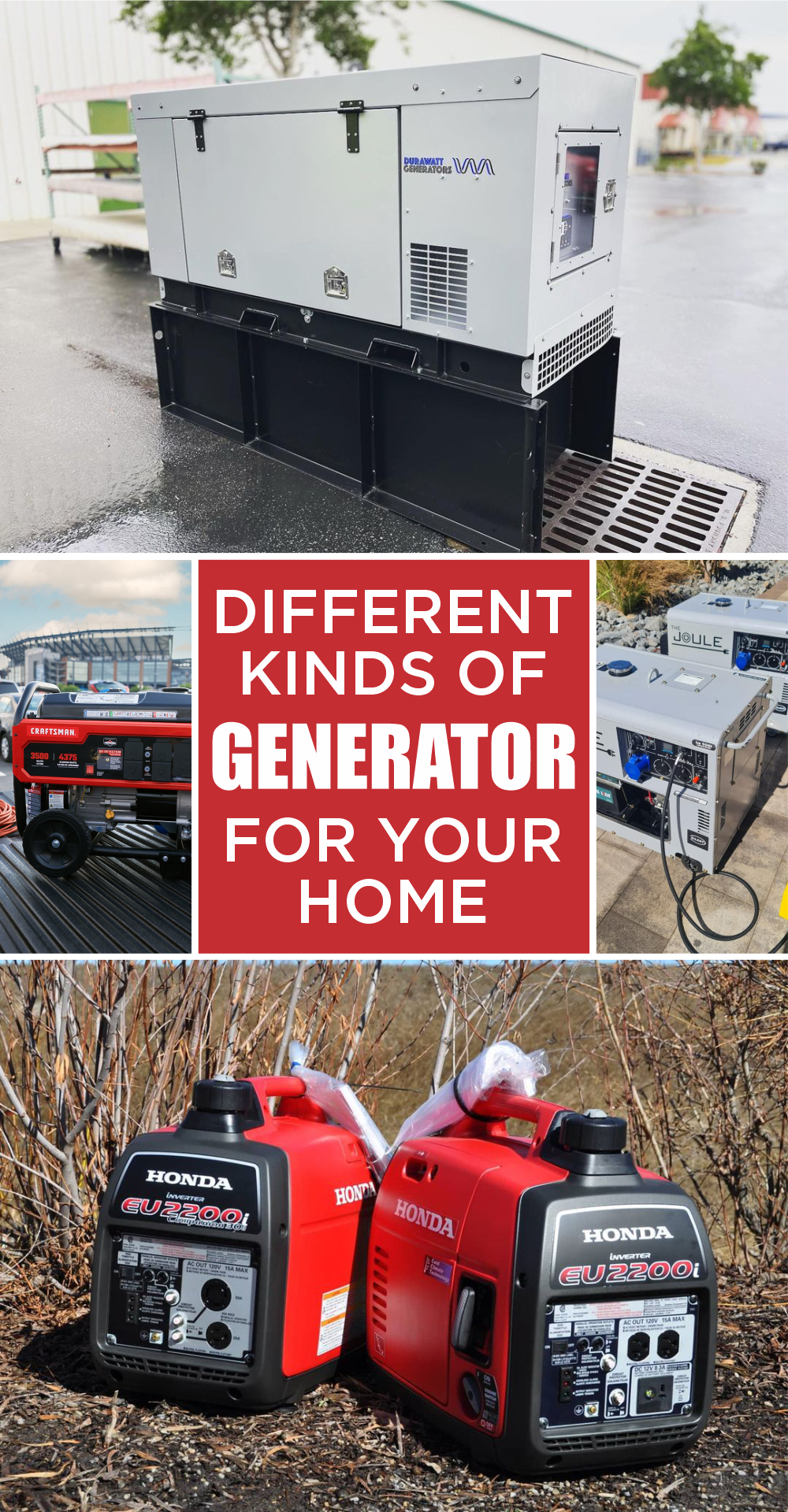
Portable Generators
Portable generators are small, easily transportable machines that provide electricity. They are often used to power outdoor events and can be useful for home backup or even as a means of emergency power in the event of a blackout or storm. There are several kinds of portable generators to choose from, ranging from conventional models that produce large amounts of power to inverter models that are quieter and more fuel efficient. Each type has its own strengths and weaknesses.
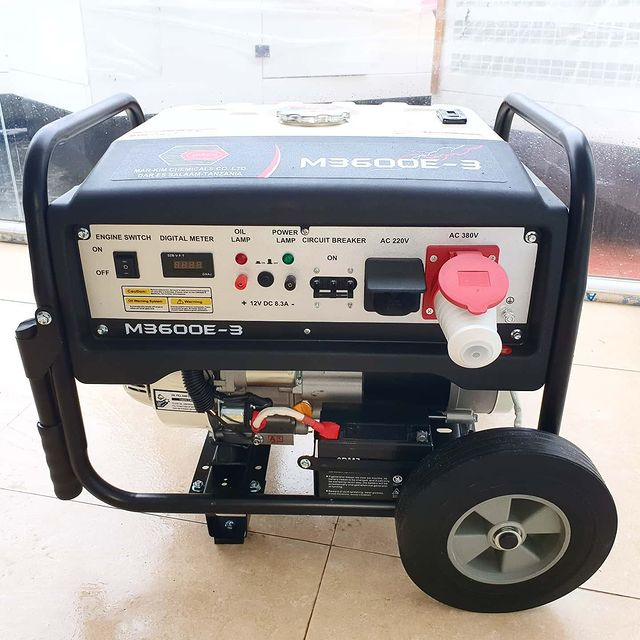
You can use a portable generator that will be easy to carry anywhere you like. Turning it on is easy enough so you don’t have to bother turning it on. When finished you can store it anywhere you like safely. Having wheels on this generator makes it easier for you to move the generator anywhere. Portable Generators from @markimperkinsgenerators
Standby Generators
A standby generator is an investment that pays for itself every time it helps you avoid power outages and adds value to your home. The most common standby generators are powered by natural gas or propane. These types of generators are more efficient and last longer than models that run on gasoline. They are also less expensive to maintain and don’t release fumes that can irritate your nose or eyes like some portable generators do.
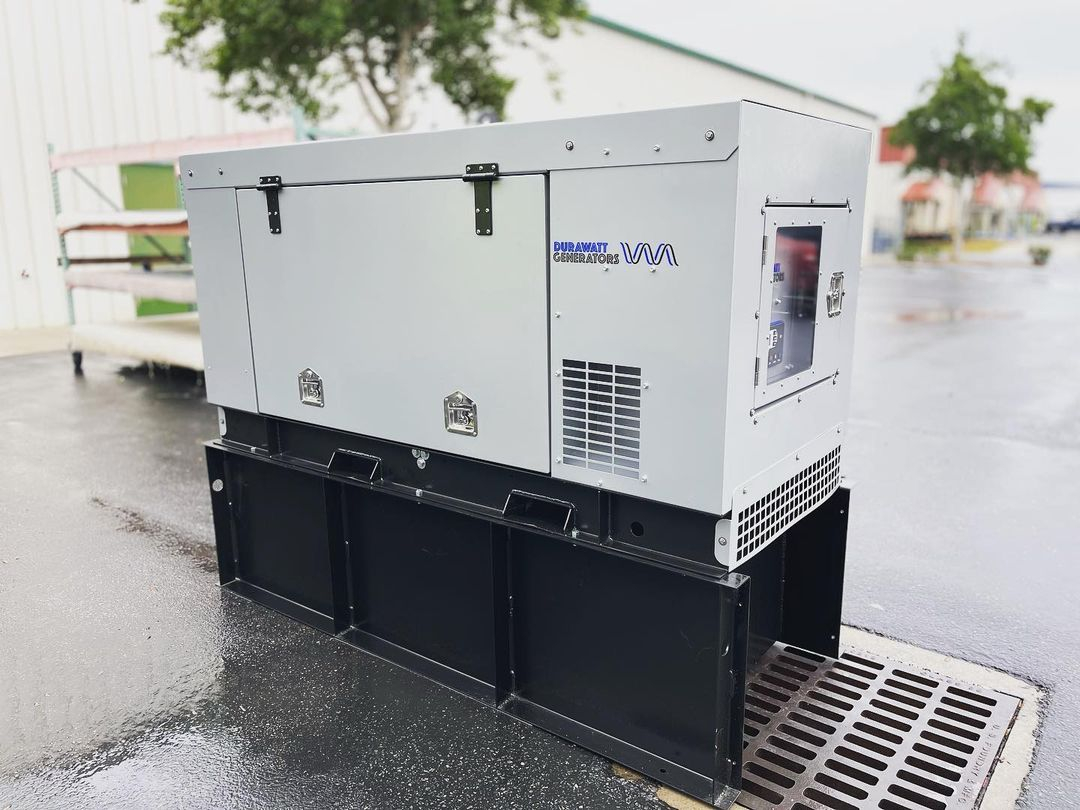
A standby generator is a backup power solution that provides power to your industry, or facility in the event of a power outage. Standby generators are usually stationary and require a concrete base used as a foundation which is usually located outside your facility. Standby Generatos from @durawatt
Natural Gas Generators
Natural gas generators are often considered eco-friendly alternatives to generators powered by oil or diesel fuel. They are more efficient and produce less greenhouse gas emissions than generators that use these fuels. A natural gas generator can provide power for a few appliances, such as a refrigerator or a water heater, or a whole house backup power system. They operate much like a gasoline-powered generator, with an internal combustion engine that burns a mixture of air and natural gas to produce electricity.
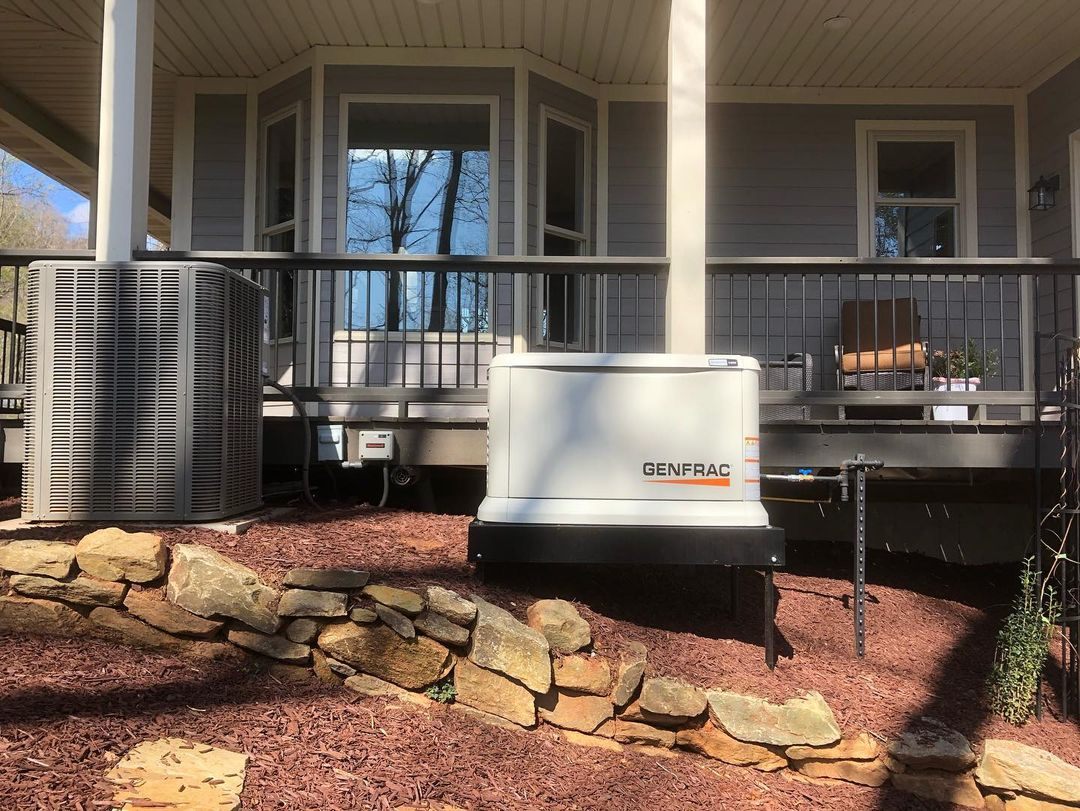
Natural gas generator is a type of generator that operates on natural gas. Compared to other generators that run on fossil fuels, natural gas generators are cost-effective, efficient to operate, and better for the environment. Natural Gas Generators from @stullerpowersolutions
Solar Generators
Solar generators combine a large battery with portable solar panels to provide a versatile and eco-friendly way to keep your home running during an outage. They’re safer than gas-powered models and less expensive to maintain, making them a great choice for emergency backups or smaller power uses like camping.
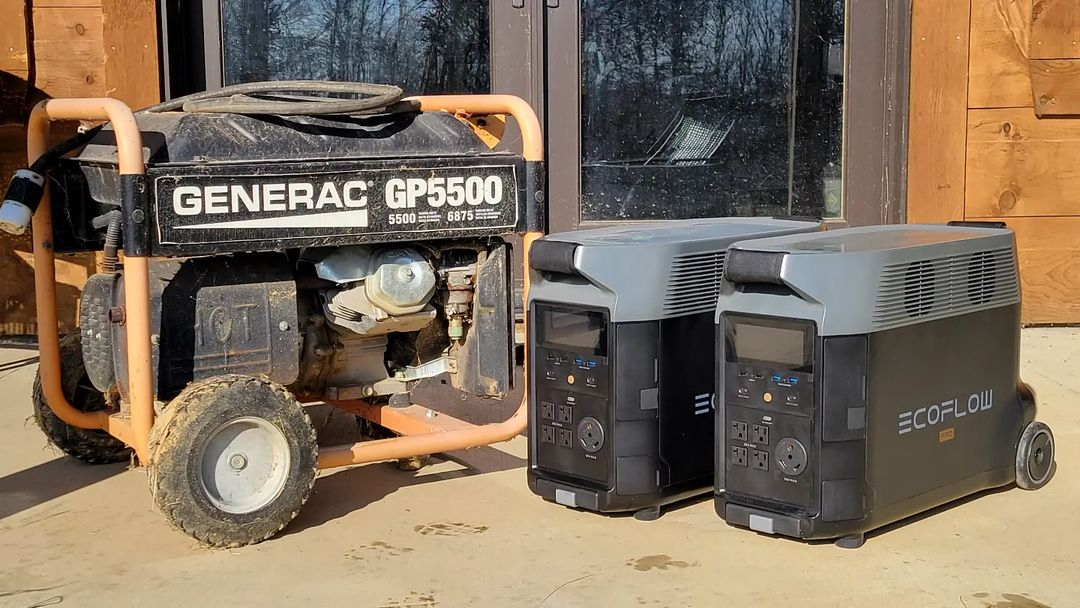
This solar generator has a combination of large batteries and solar panels for an environmentally friendly generator. This generator will be environmentally friendly and will operate during power outages. They are safer to store and use and much easier to maintain than gas generators. Solar Generators from @country_view_acres
Diesel Generators
Diesel generators are much more fuel efficient than their gas-powered counterparts, which means that you can get more power out of them and use a smaller amount of fuel in the process. This is great news for homeowners and can help save you a lot of money in the long run. Moreover, they can be operated for longer periods of time without the need for repairs or replacement parts. This can make them a smart investment for any homeowner. One disadvantage of using diesel is that they can be noisy, especially if they are used in areas that are highly populated. However, newer models are designed to be quieter and more suited for indoor use.
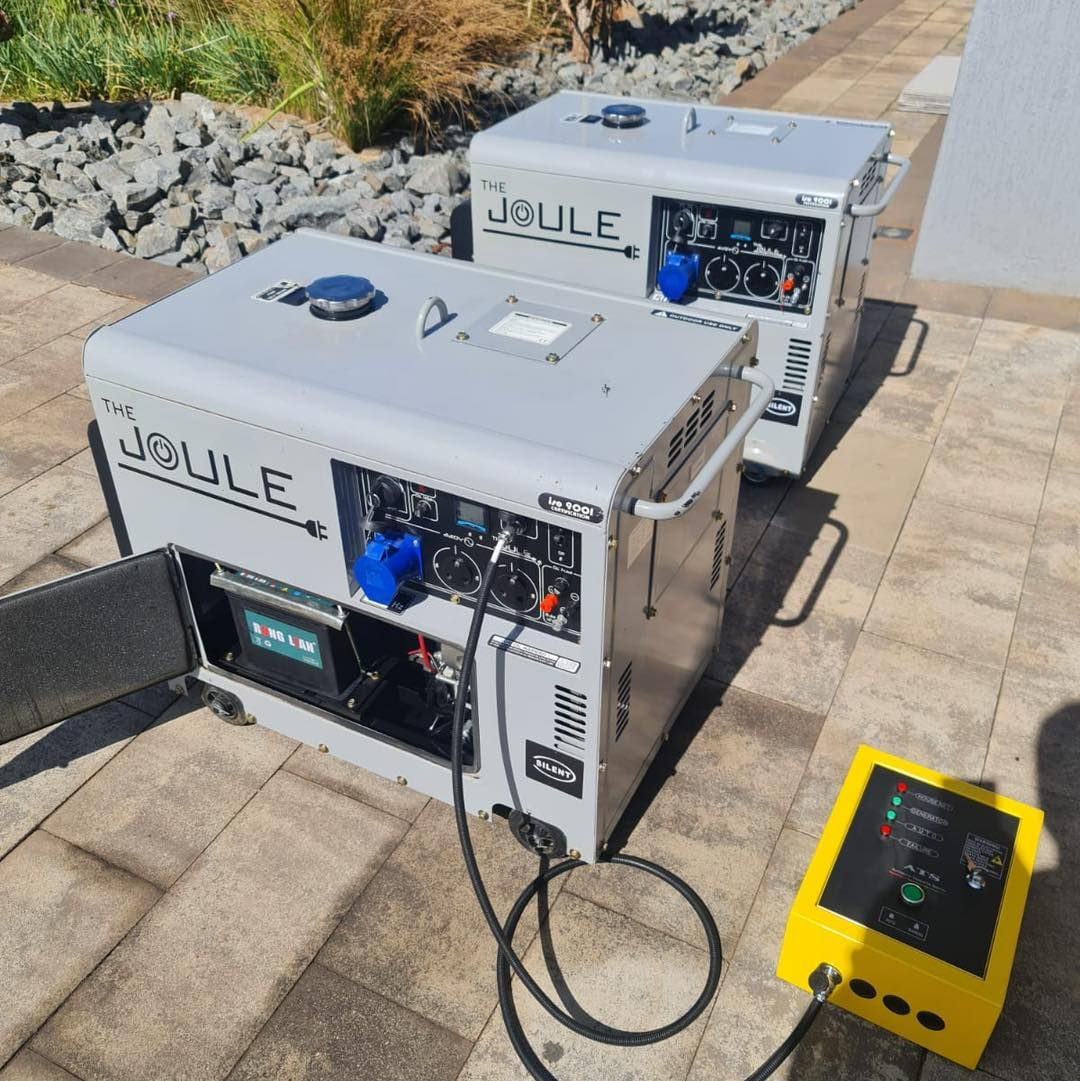
This diesel generator can make it a smart investment for any home owner. Using diesel fuel will be cost-effective in the long run. This type of generator has the disadvantage of being noisy, but you can design it to be quieter in the room. Diesel Generators from @thejoulesa
Inverter Generators
An inverter generator is a great choice for your home. It can power a variety of appliances including refrigerators, air-conditioners, and recharging electronics. They are also quieter and more fuel-efficient than their conventional counterparts. Inverter generators convert fuel into mechanical energy, which is used to turn a rotor inside an alternator. This power is then sent to a rectifier, which converts it into DC electric current. Then, it is sent to the control panel, where it can be safely used to power your appliances and more. The result is “clean” electricity, which is safe for all sensitive and smart devices.
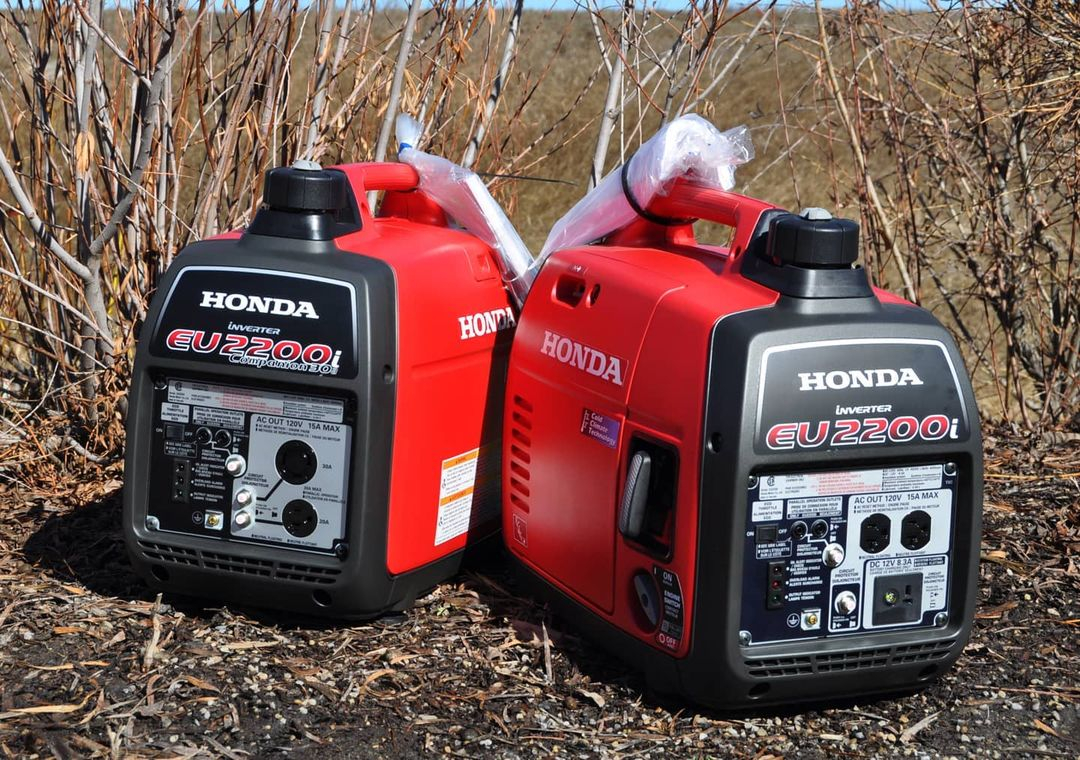
This inverter generator is used as a producer of electrical energy, to replace disconnected electrical energy or for an area that has not yet entered electricity. This type of generator has the safety to power your equipment and more. They are also quieter and more fuel efficient than their conventional counterparts Inverter Generators from @aipowercorporation
Gasoline Generators
Gasoline generators for your home are a reliable source of backup power in the event of an electrical grid outage. Compared to diesel and oil generators, they require lower maintenance and are relatively less expensive. Gasoline powered generators are available in many different models and brands. Choosing one depends on your specific needs and budget.
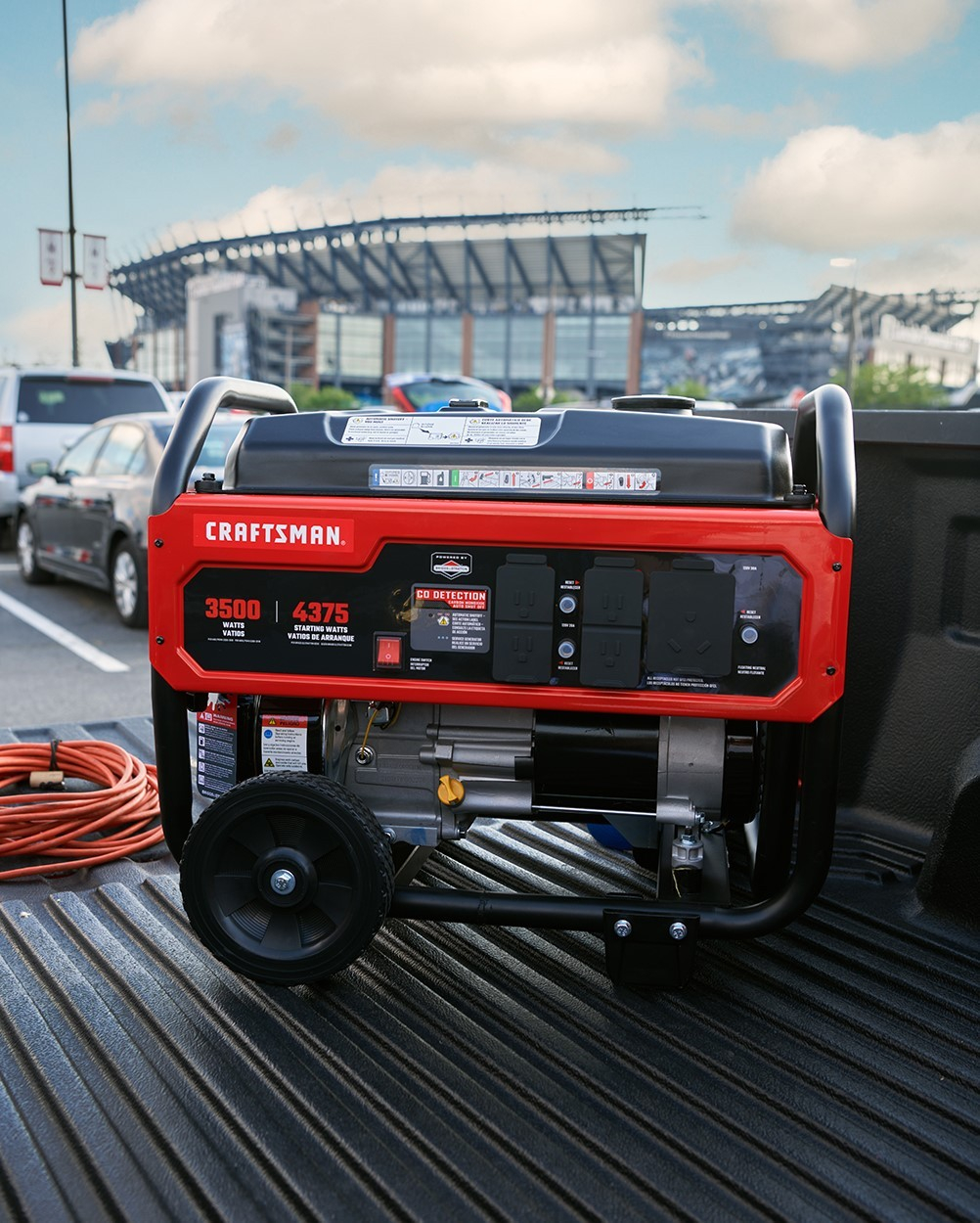
This gasoline generator has high pressure, high power, high efficiency, low discharge, green, environmental protection and other characteristics. This type of generator is low maintenance and relatively inexpensive. Having these different brands and types you can choose according to your specific budget. Having wheels will also make it easier for you to move wherever you like. Gasoline Generators from @craftsman


